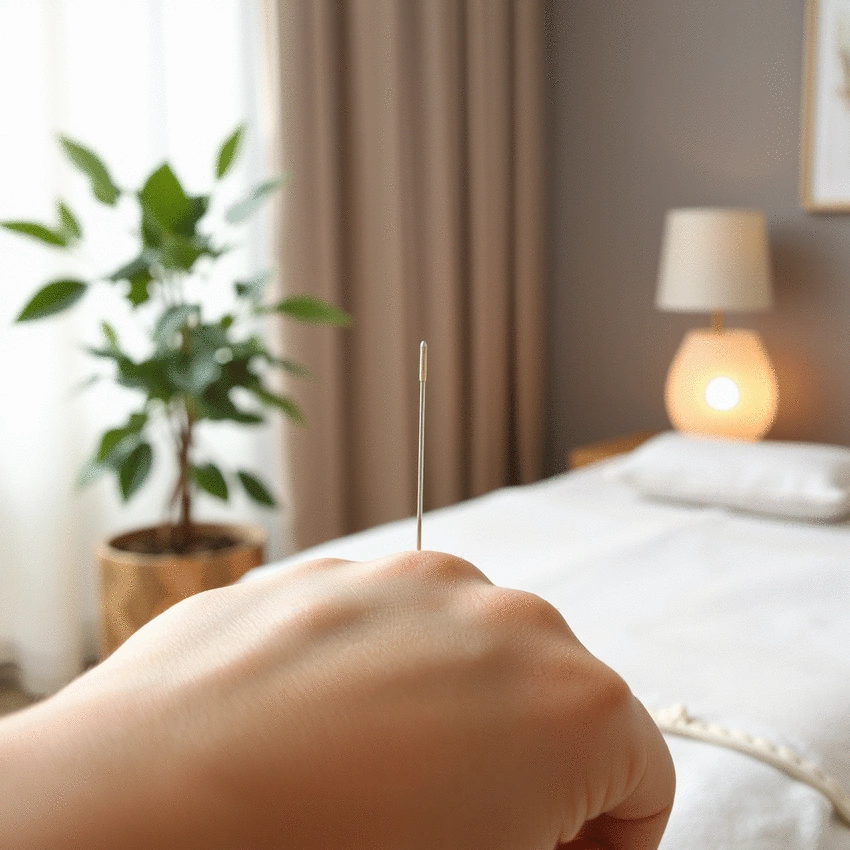Balancing Qi Through Seasonal Practices
By Kiran Wu / Feb 28
Did you know that a balanced flow of qi is essential for optimal health and well-being? In the realm of Traditional Chinese Medicine, understanding this energy can profoundly impact your life. This article explores the intricate connection between qi and acupuncture, offering insights into how these age-old practices can enhance your vitality.
Recognizing how qi imbalance affects health and the benefits of acupuncture can help guide personal wellness journeys. Below is a representation of key points and their impacts on health. To learn more about how qi imbalance can affect your well-being, explore our detailed guide on energy flow and acupuncture treatment.
When we dive into the world of Traditional Chinese Medicine (TCM), one term stands out: qi. This vital life force flows through all of us, shaping our health and well-being. At The Meridian Connection, I’ve seen firsthand how understanding and balancing qi can transform lives, paving the way for holistic wellness!
Qi acts like the energy that fuels our bodies, connecting every organ and function. In TCM, it’s believed that maintaining a smooth flow of qi is essential for good health. If you think of qi as a river, any blockages can lead to health issues, much like a dam disrupting the flow of water.
Qi is often described as the essence of life itself—it's the energy that animates us! In TCM, this force is not merely theoretical; it’s the foundation of health practices like acupuncture. By understanding qi, we can better appreciate how our bodies function and how to maintain harmony within.
There are different types of qi, including nutritive qi and defensive qi, each playing unique roles in our health. For instance, nutritive qi supports our bodily functions, while defensive qi protects us against disease. By treating the balance of these energies, we can cultivate a more vibrant life.
Have you ever felt unwell without a clear reason? That could be a sign of qi imbalance. When our qi is stagnant or depleted, we might experience fatigue, stress, or even chronic pain. It’s essential to recognize these signs early!
At The Meridian Connection, I emphasize the importance of tuning into our bodies' signals. Recognizing these signs can be the first step toward restoring balance and vitality. For more information on how to restore balance, check out our article on balancing qi for better health.
Acupuncture is a powerful tool for enhancing qi flow by stimulating specific points on the body, known as acupoints. Each acupoint corresponds to different organs and functions, creating a network of pathways for energy to travel. It’s like turning on a light switch to illuminate a dark room!
During an acupuncture session, fine needles are inserted into these acupoints. This practice encourages the body to release endogenous opioids that reduce pain and promote relaxation. As a result, patients often report feeling a sense of calm and rejuvenation after their sessions.
Meridians are the highways of qi, running throughout our bodies and connecting acupoints. These pathways allow energy to flow freely, ensuring that our physical and emotional needs are met. When we experience blockages in our meridians, it can lead to various health problems.
By understanding how these meridians work, we can better appreciate the profound effects acupuncture can have on our overall health. When you clear blockages in your meridians, you allow qi to flow freely, promoting a harmonious state of being!
The meridian system is a complex network that plays a crucial role in how qi circulates. In TCM, there are twelve main meridians, each linked to different organs and functions. When engaging with acupuncture, one can target these specific pathways to address unique health issues!
Think of it like a map where each location represents a different aspect of your health. By navigating this map through acupuncture, we can locate where the energy is stagnant and where it needs a little boost. For a deeper dive into the meridian system, read our article on understanding acupuncture and meridians.
When energy flows smoothly through the meridians, we experience optimal health and vitality. However, disruptions can lead to both physical and emotional ailments. Understanding this connection empowers us to take action and seek balance in our lives.
As we work to harmonize our qi and meridians, we unlock the potential for improved well-being and a more vibrant life. At The Meridian Connection, I’m excited to help you embark on this journey of understanding and balance!
Here's a brief recap of the key points discussed so far:
Qi is the vital life force, or energy, that animates living beings and is fundamental to health in TCM. It flows through specific pathways in the body known as meridians.
An imbalance in qi can manifest as various symptoms, including fatigue, stress, chronic pain, and diminished overall well-being. It occurs when qi is stagnant, depleted, or flowing improperly.
Acupuncture stimulates specific acupoints on the body, which are located along the meridians. This stimulation helps to unblock stagnant qi, regulate its flow, and restore balance, thereby promoting healing and reducing symptoms.
Meridians are energy pathways through which qi flows throughout the body. They connect different organs and body parts. In acupuncture, needles are inserted into acupoints along these meridians to influence and optimize qi flow, addressing specific health concerns.
A typical first session includes a consultation about your health history and concerns, a diagnosis (often involving pulse and tongue examination), and the insertion of fine needles into acupoints. Sessions usually last 30-60 minutes, and many people find them relaxing.
The frequency of treatments varies based on individual needs and conditions. Initially, 1-2 sessions per week for 4-6 weeks may be recommended for acute conditions, followed by maintenance sessions every 2-4 weeks for ongoing wellness.
Yes, acupuncture can be highly effective when integrated with other holistic practices such as Qigong, herbal medicine, mindfulness meditation, and a balanced diet. These complementary approaches can enhance qi balance and overall well-being.
When considering your first acupuncture session, preparation can enhance your experience significantly. It's essential to approach this journey with an open mind and a willingness to explore how Traditional Chinese Medicine might transform your well-being. By understanding what to expect, you can feel more at ease and ready to embrace the benefits of acupuncture.
Before your appointment, ensure you have a clear understanding of your health history and any specific concerns you want to address. This information will help your acupuncturist, who may ask detailed questions about your lifestyle, emotional state, and physical health. One of the best parts of acupuncture is that it’s tailored to you!
So, what should you expect during your first session? Here’s a quick overview to help alleviate any anxiety:
As you begin your acupuncture journey with The Meridian Connection, I encourage you to keep an open channel of communication with your practitioner. Sharing your feelings about the treatment can help guide your sessions toward optimal results.
During your session, you might feel a slight prick when the needles are inserted, but many find the experience surprisingly relaxing. Some clients even drift off into a peaceful nap! Afterward, you may feel a sense of calm or heightened energy, as the goal is to restore balance to your qi.
Remember, the journey of acupuncture is personal. Pay attention to your body’s responses; this awareness can help you understand how acupuncture affects your energy flow and overall health.
How often should you schedule your acupuncture appointments? Here are some recommendations:
Staying consistent with your treatments can lead to profound changes over time, enhancing not just your physical health but also your emotional well-being.
Acupuncture can be even more effective when combined with other holistic practices. At The Meridian Connection, I encourage you to explore various methods that complement your acupuncture journey. Here are a few that I find particularly beneficial:
Integrating these practices can create a harmonious lifestyle that fosters better health. Each technique enriches the other, helping you understand and balance your qi more effectively.
By practicing Qigong alongside acupuncture, you can learn to cultivate your energy intentionally. This ancient practice not only enhances your body's natural healing abilities but also promotes relaxation and mental clarity. The movements in Qigong help you connect more deeply with your meridians, making your acupuncture sessions even more powerful. To explore more about how meridians contribute to health, see our article on meridians and health connection explored.
As you explore these practices, consider how they fit into your daily life. Finding balance is about more than just treatments—it's a holistic approach to living well!
Combining acupuncture with other holistic approaches creates a comprehensive wellness strategy. Here are a few more practices to consider:
By embracing these practices, you can cultivate a life rich in wellness and harmony, creating a solid foundation for your health.
As we navigate through the day-to-day hustle, it’s easy to overlook the importance of qi balance. But remember, integrating regular acupuncture into your life is a powerful way to promote overall wellness. Each session is an opportunity to reconnect with yourself and restore your body's natural harmony. For more on this, check out how balancing qi with traditional medicine can enhance your well-being.
Finding the right balance in life—physically, mentally, and emotionally—is essential for optimal health. Regular acupuncture, along with other holistic practices, creates a supportive environment for healing and vitality.
Incorporating practices that support your qi can lead to lasting changes. Here’s how you can emphasize this balance in your daily routine:
By making small adjustments, you’ll notice a difference in how you feel, leading to greater harmony and balance in your life.
It’s fascinating how acupuncture can influence our health long-term! Regular sessions can enhance your body’s ability to cope with stress, boost your immune system, and improve sleep quality. With consistent care, you’re not just treating symptoms; you’re nurturing your overall well-being.
As you embark on this journey, remember that you're not alone! The support from The Meridian Connection is here to guide you through every step, empowering you to embrace the benefits of acupuncture and holistic wellness.
Are you considering acupuncture? It’s an exciting step toward a healthier, more balanced life! Finding a qualified practitioner is vital for this transformative experience. Look for someone with a solid background in Traditional Chinese Medicine and positive client reviews to ensure you receive the best care.
As you begin this journey, take a moment to reflect on your health goals. What areas of your life do you want to enhance through acupuncture? Connecting with your qi can be a wonderful path to improved health. Let’s embark on this journey together and explore how balancing your qi through acupuncture can change your life for the better!
Here is a quick recap of the important points discussed in the article:

 Balancing Qi Through Seasonal Practices
As the seasons change, so do our bodies and minds. The ancient wisdom of Traditional Chinese Medicin
Balancing Qi Through Seasonal Practices
As the seasons change, so do our bodies and minds. The ancient wisdom of Traditional Chinese Medicin
 Meridians and Chronic Pain Explained
Have you ever considered how ancient wisdom can illuminate modern health challenges? The fascinating
Meridians and Chronic Pain Explained
Have you ever considered how ancient wisdom can illuminate modern health challenges? The fascinating
 Meridian Blockages and Health Effects
Have you ever considered how the flow of energy within your body can impact your overall well-being?
Meridian Blockages and Health Effects
Have you ever considered how the flow of energy within your body can impact your overall well-being?